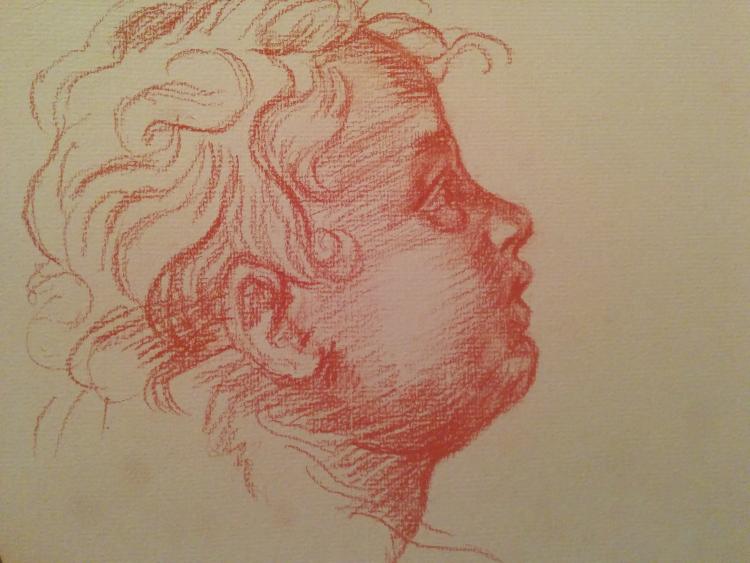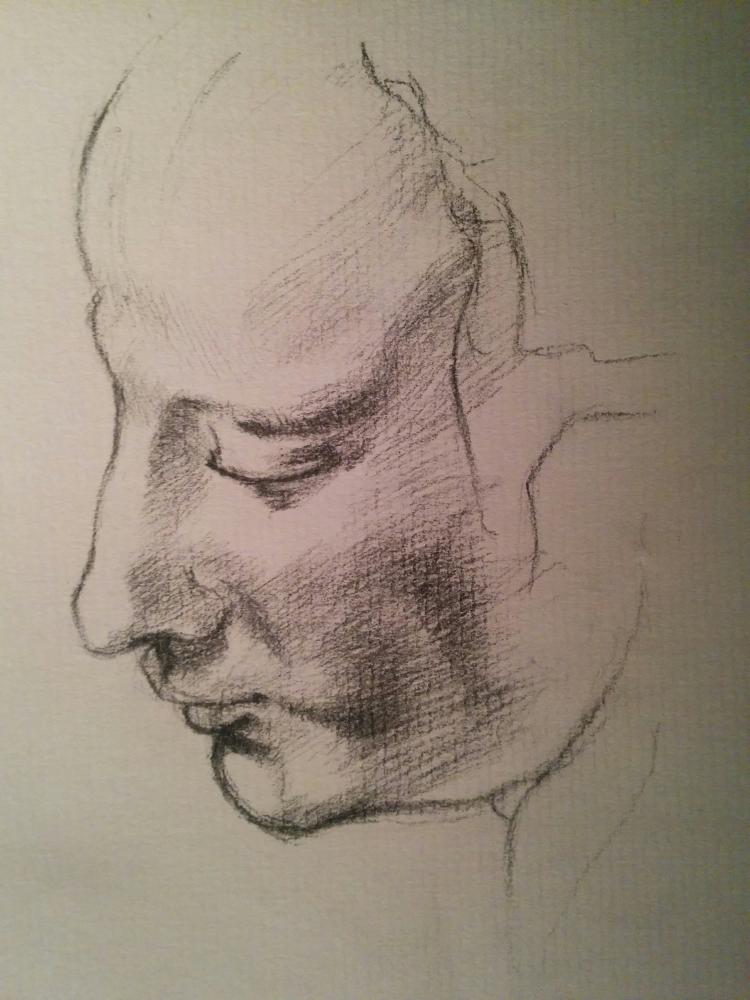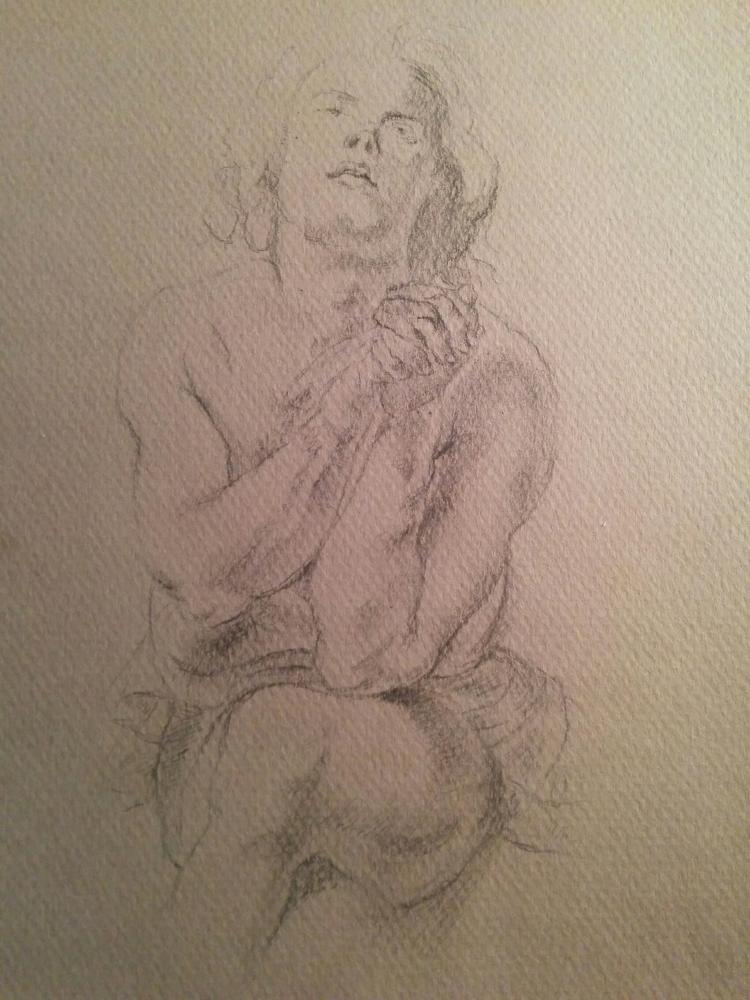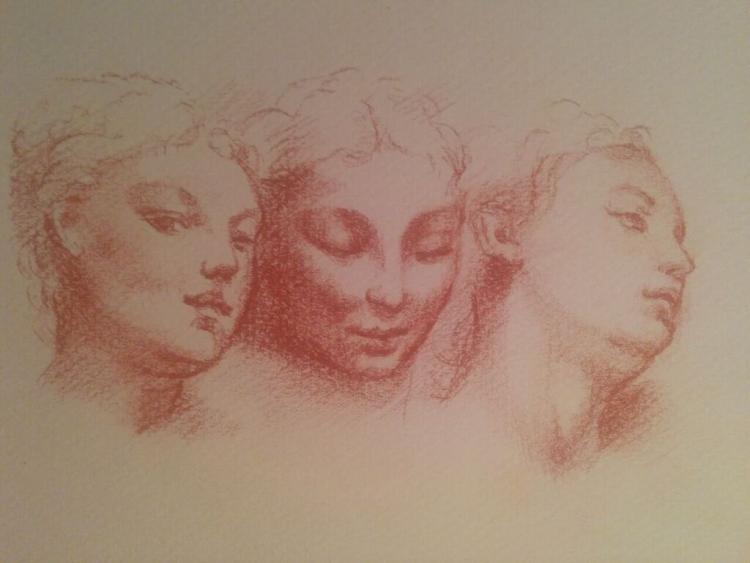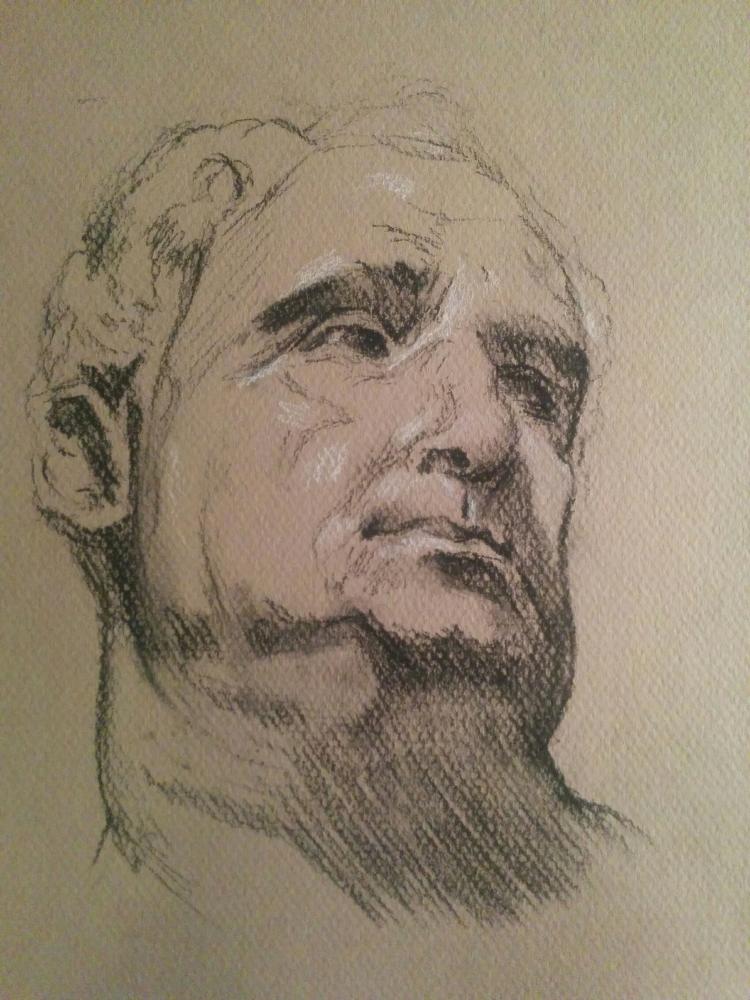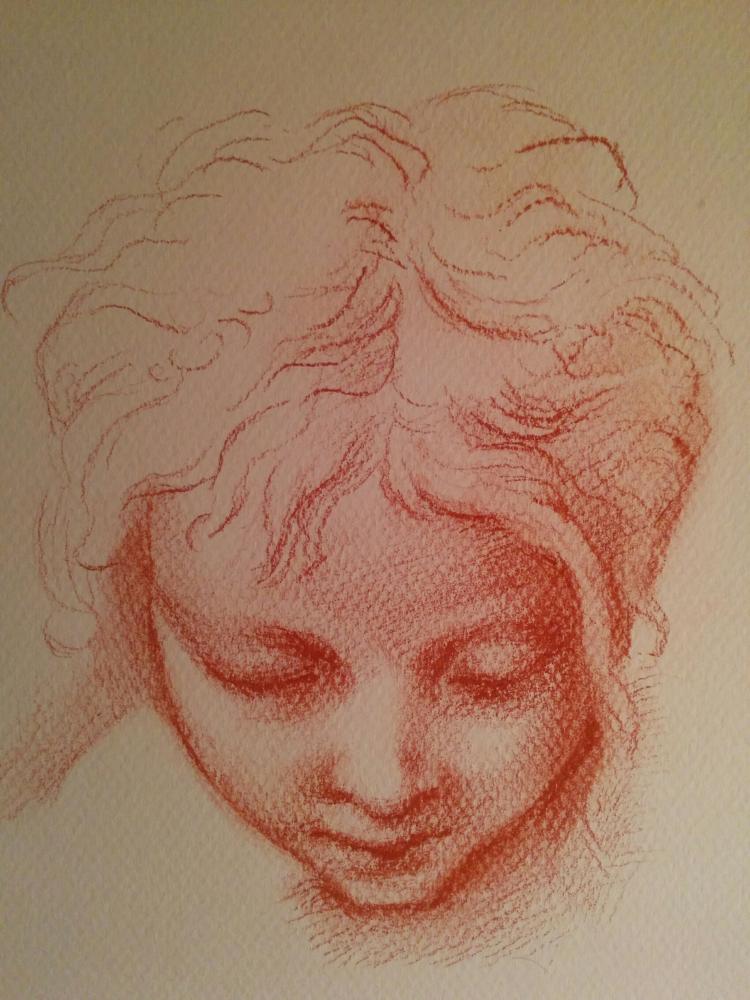I indulged myself with some more Egyptian stuff at the Met today. I can't get over the paintings on the inside of the coffins. Such careful decoration, such labour over the colour and the lines and the symmetry, and all of it to be placed inside another coffin, locked up in a tomb where no mortal eye was ever to see it again. And yet they worked so attentively, with such skill and care. The purpose was apparently to ensure the transformation of the dead into a deity, but I love the idea that there was art made with such care and attention that was explicitly not meant to be seen by anyone. It is accident that we can see it today in our museums. And that carries with it a special charm, the enjoyment of a precious beauty that may never have been seen.
And guess what? Proust knew the rarity of that beauty, and the rapture with which we can drink it in. Here he is, on seeing an exquisite detail in some clothing ordinarily concealed and only revealed by chance:
And I learned that these canons according to which she dressed, it was for her own satisfaction that she obeyed them, as though yielding to a Superior Wisdom of which she herself was High Priestess: for if it should happen that, feeling too warm, she threw open or even took off altogether and gave me to carry the jacket which she had intended to keep button up, I would discover in the blouse beneath it a thousand details of execution which had had every chance of remaining unperceived, like those parts of an orchestral score to which the composer had devoted infinite labor albeit they may never reach the ears of the public: or in the sleeves of the jacket that lay folded across my arm I would see, I would drink in slowly, for my own pleasure of from affection for its wearer, some exquisite detail, a deliciously tinted strip, a lining of mauve satinette which, ordinarily concealed from every eye, was yet just as deliciously fashioned as the outer parts, like those gothic carvings on a cathedral, hidden on the inside of a balustrade eighty feet from the ground, as perfect as are the bas-reliefs over the main porch, yet never seen by any living man until, happening to pass that way upon his travels, an artist obtains leave to climb up there among them, to stroll in the open air, sweeping the whole town with a comprehensive gaze, between the soaring towers.Marcel Proust, Within a Budding Grove
And that reminds me of the Museo dell'Opera del Doumo in Florence, where you can see all of the original sculpted reliefs from Giotto's Campanile up close at eye-level. In-situ, on the tower itself, most of them are too high to see properly, let alone appreciate. And Proust has nailed it. There is a special kind of wonder at beauty that could easily never have been seen.
I like to think about how many hidden wonders of art there are out there that will never be seen again. More sculptures like those heart-stopping Riace bronzes that lay at the bottom of the ocean for thousands of years, or more cave paintings from 17,300 years ago that could quite easily have remained forever in darkness.
